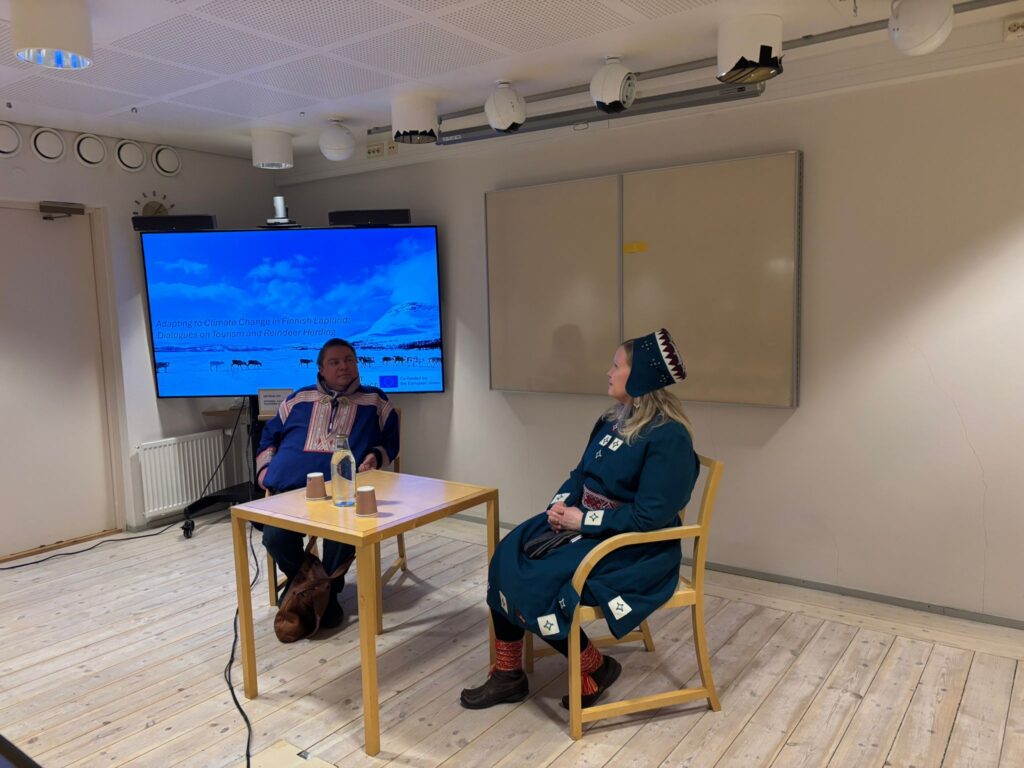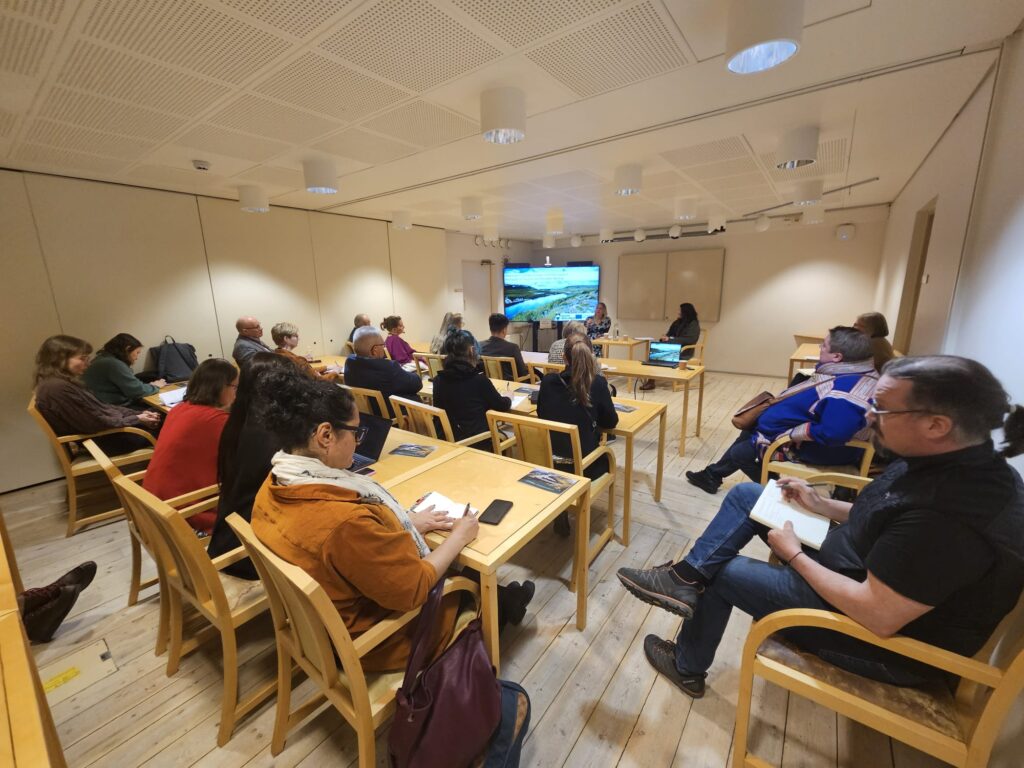At the recent Arctic Spirit Conference (Rovaniemi, Finland), MountResilience organised two dialogues. The first dialogue focused on the lived realities of Sámi reindeer herders in the face of accelerating climate change and increasing land use pressures. The second dialogue focused on the challenges faced by the tourism industry as a result of climate change. Both dialogues made it clear that both industries are concerned about increased accidents in nature. Accidents are particularly linked to changes in snow and ice conditions. Rescue operations are more frequent and environmental conditions are often more challenging.
Resilience and Sámi Reindeer Herding in a Changing Arctic
Sámi reindeer husbandry has been hampered in recent years by difficult winter conditions, with the pasturelands freezing over and reindeer finding it difficult to get food. In their dialogue, both Tuomas Aslak Juuso, deputy chair of the Finnish Sámi Parliament, and Tiina Sanila-Aikio, chair of the Sámi Reindeer Cooperatives Association, expressed concern that if reindeer husbandry ceases due to climate change and cumulative land use pressures from other land use types, the entire Sámi culture will be threatened.

The participants emphasized that reindeer herders are already adapting to changes through traditional knowledge, observation, and innovation—but current efforts are not enough without coordinated support. They called for political will, cross-border cooperation, and concrete emergency mechanisms similar to those in place in Sweden and Norway. Unpredictable weather, increased military activity, and competition for land use are all compounding the challenges herders face on a daily basis.
Losing reindeer herding would mean losing the backbone of Sámi culture—its language, food, crafts, and oral traditions. Dialogue participants stressed that resilience depends not just on adaptation, but also on environmental justice and meaningful inclusion of Indigenous knowledge in climate policies. As one herder concluded:
We are living between tradition and modern life. Sharing knowledge and experience is how we survive.
Adapting to a Changing Arctic: Safety, Sustainability and Tourism Resilience in Northern Lapland
Liisa Kokkarinen, Director of Sustainable Development at Visit Finland, said in her speech that one of the risks associated with tourism is that anyone can become a tourism entrepreneur. These wild tourism operators, which are on the increase in Lapland, are not necessarily familiar with places and nature, or even with the legislation. Even the activities of guides are not sufficiently regulated.

The dialogue between Liisa Kokkarinen and Laura Hokajärvi from the Finnish Lapland Tourism Board (LME) highlighted how these unregulated operators can compromise both visitor and environmental safety. Participants shared examples of foreign guides leading large groups without proper training, or using equipment like snowmobiles in ways that endanger people and nature. As climate change causes unpredictable snow and ice conditions, the risk of accidents grows—especially when operators lack local knowledge and crisis preparedness.
To address these challenges, MountResilience is working with selected local tourism businesses to co-develop adaptation plans. These include climate-focused safety training, nature-based solutions, and support for transitioning toward year-round, sustainable operations. The dialogue made it clear: building resilience in Arctic tourism requires close cooperation between entrepreneurs, communities, and public authorities—and a collective effort to safeguard the fragile environment on which the region’s future depends.
